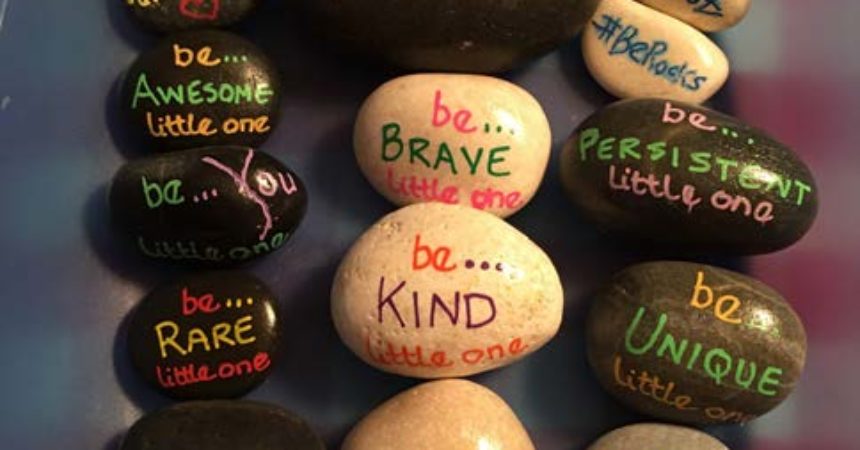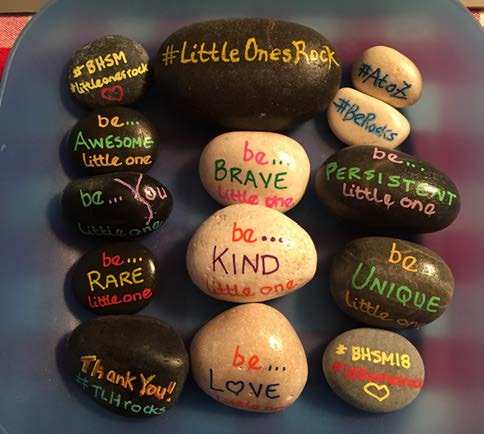
Better Hearing and Speech Month helps to bring awareness to communication disorders

The Children’s Communication Center helps children with speech disorders to communicate using little rocks. Photo special to the Outlook
By Shardae Ray
Outlook Writer
Nighttime was always torturous for baby Caleb. He spent most of the hours twisting and turning.
His mom, Yolanda Samuel, would hear every turn. It was unlike anything that Samuels had experienced with any of her two other children.
Caleb’s agony went on for almost a year before Samuels decided to take her son to the doctor.
Diagnosis?
Samuels found out that her son was born with a hearing disorder that has symptoms similar to a common cold. However, Caleb had a more complicated disorder that doctors described to his mother as Eustachian tube dysfunction.
Caleb, now 13, was born with detached Eustachian tubes.
Eustachian tubes are canals on each side of the face that help regulate ear pressure and drain excess fluid. Detachment of the tubes makes hearing limited.
Caleb isn’t alone and the sChildren’s Communication Center is doing something to help him and others in Tallahassee. The Center has been especially active during the past several weeks, as May was designated as Better Hearing and Speech Month.
Caleb is in a group of children that the National Institute on Deafness and Other Communication Disorders says make up three of every 1,000 children in the United States that suffer from some form of hearing loss.
The Center in Tallahassee stages activities such as a ‘Show and Tell’ to promote communicative growth between parents and their children. The Center also offers help for communication disorders by providing programs to improve verbal, written and social skills.
Other programs include the Center’s “Little Ones Rock Campaign,” which promotes language literacy.
“Little Ones Rock” allows family to participate with their children in communicating by painting on small rocks. The rocks are used in the center’s Little Free Library, located at Winthrop Park’s playground.
Despite the resources available, Caleb’s Eustachian tubes never grew as he got older. He was fitted with artificial tubes, but his body rejected the procedure and his hearing problems persisted.
He has learned to live with the impairment.
“Everything sounded like I was under water,” Caleb said, describing his first years of childhood.
His inability to hear well also affected his speech.
“He talked the way he heard things and it made it hard to know what he was saying,” his mother said.
Sometimes Caleb’s older sister, Chonda, translates his words.
“I have no idea how she understood what he said, but she could tell me when he wanted juice and things like that,” his mother said, adding that it sometimes brings on frustration. “It’s hard not being able to understand your own child.”







